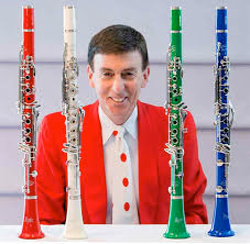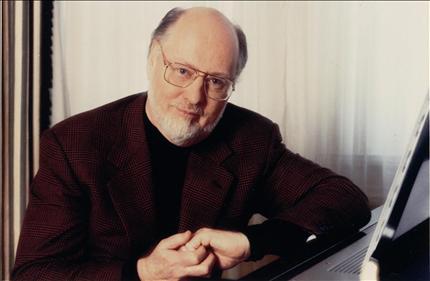by Jarrett Hoffman

On Saturday, February 2 at 8:00 pm at Severance Hall, Topilow and the Cleveland Pops will honor Williams “and his incredible contributions to the world of music,” as the conductor told us recently over email. Tickets are available here.
“In the span of six decades, John Williams has composed some of the most popular, inspiring, and recognizable film scores in cinematic history,” Topilow said. “Whether drama, science fiction, patriotism, action, adventure, comedy, or despair, he always finds the perfect mood. It is a great joy to perform his music, and we look forward to a wonderful concert.”
A clarinetist as well as a conductor, Topilow is known for brandishing that wind instrument during performances for a bit of fun from the podium. In a short YouTube video, he plays a few tunes you’re likely to hear from the Pops on Saturday, including themes from Raiders of the Lost Ark (the first movie in the Indiana Jones series), E.T. the Extra-Terrestrial, and Star Wars, with a few creatures and characters joining him on-screen.
But it’s hard to even say definitively that those three are Williams’ most famous scores. What about Jurassic Park? Harry Potter? Or Jaws (are there any two notes in music more famous)? For all that went into those franchises — endless artistic, technical, and commercial work — they seem unimaginable, or at least immensely duller, without their particular music in the background.
(People have put together altered, music-less clips of these movies, in some cases to try to prove that point, and in other cases just for fun. The results can actually be interesting with their newly ambiguous mood — here’s the helicopter arrival scene from Jurassic Park with and without Williams. Or they can be hilarious — see the original, heroic ending scene to Star Wars: Episode IV, versus this awkward, quiet version of the ceremony, which might even be modified a little more for laughs. While it’s true that the quiet clips help show the impact of music on film, it’s so unlikely that anything like these versions would have even been considered. It’s an impossible comparison to make.)
Topilow took a bird’s-eye, historical look at Williams’ importance to film music during our 2016 interview. “He’s brought the symphony orchestra into a new golden era,” the conductor said. “You had the era of Korngold, Waxman, Rózsa, and all those composers from the late ‘30s to the ‘50s. There were others in between them and Williams, but since then he’s at the top level of all the composers who have taken up their mantle brilliantly. Star Wars did so much to make the symphony orchestra part of the film experience.”
And in closing, he commented on that obvious yet often unspoken division in classical music programming. “I personally think that orchestras should incorporate film music on their so-called ‘Masterworks’ series rather than just relegating them to ‘Movie Night.’ After all, Vaughan Williams, Walton, Copland, and Prokofiev all wrote music for films in their day.”
Published on ClevelandClassical.com January 28, 2019.
Click here for a printable copy of this article



